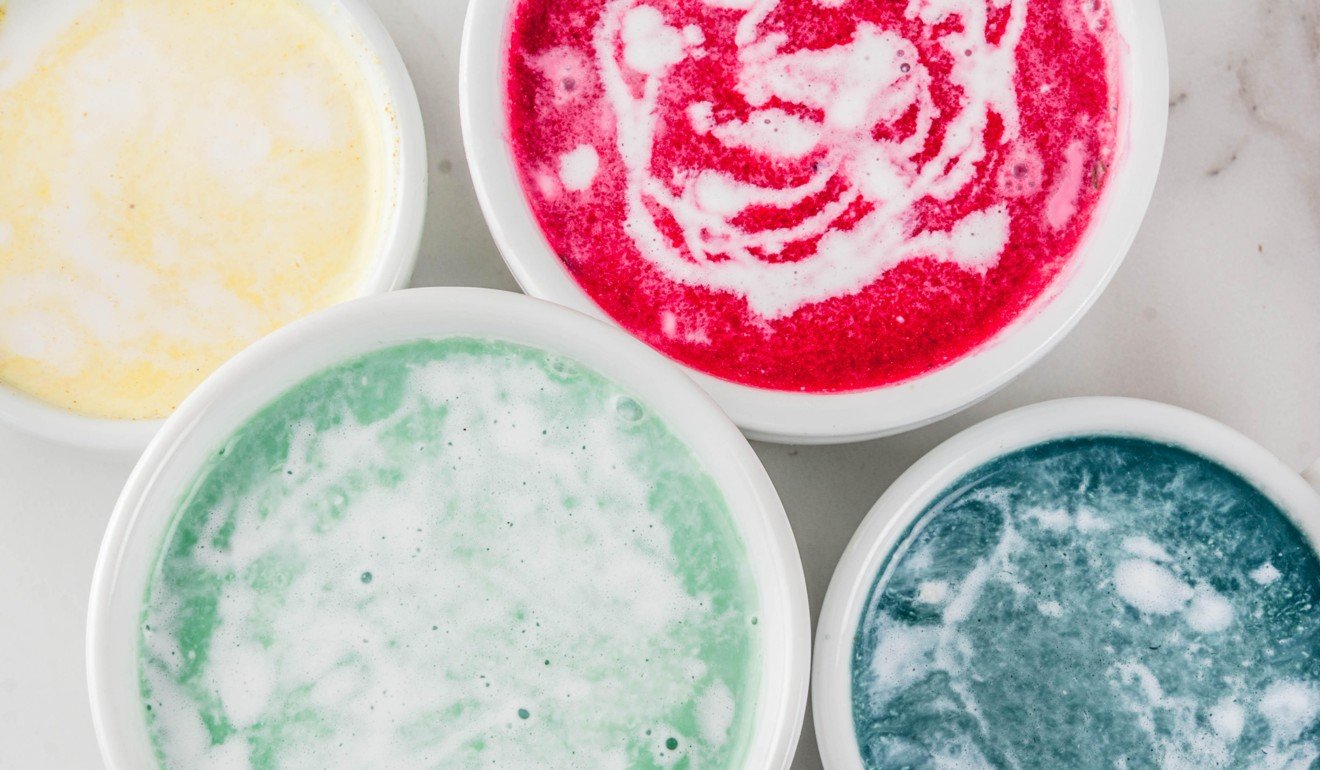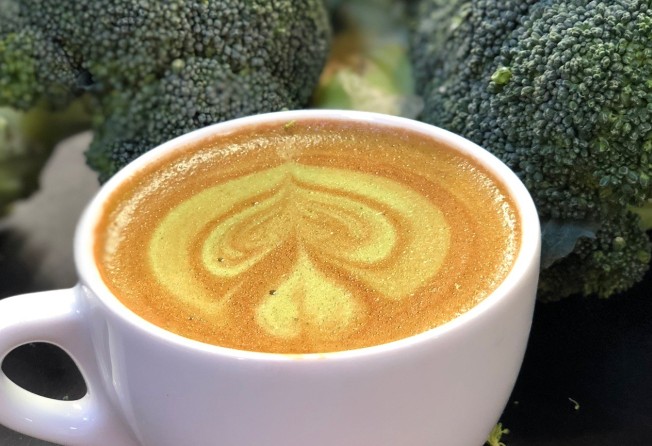
Broccoli coffee? Five other weird things baristas add to a cup of joe that might be boosting your health
Broccoli has long been admired as one of the world’s healthiest vegetables and now scientists have worked out how to get it in your morning brew – but it is far from the only weirdly beneficial ingredient to give coffee a health kick

The latest in a line of healthy coffee flavours – broccoli – is the trendiest new way to meet your recommended daily vitamin intake.
Scientists from the Australian government agency CSIRO (Commonwealth Scientific and Industrial Research Organisation) and agriculture group Hort Innovation have developed a powder designed not only to give coffee fans a health boost, but also to support Australia’s food producers and divert “ugly” produce from landfill.
The vitamin-packed vegetable is dried and turned into powder form to preserve its health benefits before being stirred into coffee served in Melbourne cafes. The powder is produced using broccoli plants that have been deemed imperfect for supermarket sale that would have ended up in landfill.
Added to milk, or milk substitutes, during the steaming phase, the powder is said to give lattes the earthy, slightly bitter taste of broccoli. For those hesitant to dive into the deep end of brassica-based beverages, they can incorporate it more lightly with just a sprinkle of the powder on top of their drink.
Long admired as one of the world’s healthiest vegetables, broccoli – part of the cabbage family – is high in iron, phosphorus, potassium, calcium, manganese, and vitamins A, C and K. Although cruciferous vegetables (like broccoli) can give some people gas, broccoli more than makes up for it by helping to protect against cell damage and cancer while helping to regulate blood sugar and cholesterol.

Broccoli is just one of many unconventional ingredients that can be added to coffee for both health and aesthetic purposes. Here are a few other barista specials:
Algae
Blue-green algae, or spirulina, is an acquired taste to say the least. Its pungent aquatic flavour, however, hasn’t stopped this superfood from achieving rock star status among the health conscious.
It is packed with vitamins A, C, E and B, plus calcium, magnesium, zinc and selenium, and helps to prevent cells and tissues from damage. It is also a great vegan source of iron and protein, and there is evidence that it can help regulate blood sugar levels and reduce anaemia.
Health buffs have long been blending spirulina powder into fresh smoothies, and it wasn’t long before it found its way into coffee drinks. Baristas in Melbourne found a way to take the edge off the taste with ginger and lemon, before mixing with coconut milk.
Turmeric
In Asia, turmeric has been used as a food, medicinal ingredient and dye for thousands of years. Its health benefits stem from curcumin, a chemical compound contained within the spice that is claimed to help reduce inflammation – though this benefit has not been proven conclusively in studies.
Over the last few years, golden-hued turmeric lattes have been a mainstay on the Instagram feeds of health-conscious coffee lovers.
Taro
A popular food flavour in Hong Kong, taro lattes have a striking lilac colour and a glowing nutritional profile.
Taro latte oddly amazing! #theglassden #latte #tarolatte
A post shared by Jade Elise Munro (@hijaked_by_hamish) on May 14, 2018 at 9:20pm PDT
A source of dietary fibre and antioxidants, the root vegetable is particularly rich in vitamin E and B6, as well as manganese and potassium, which are important for brain and nerve function. Its sweet, nutty flavour – likened to popcorn – lends itself particularly well to hot drinks, avoiding the need for added sugar. Taste it for yourself at Pause It cafe in Mong Kok.
Beetroot
Another Australian concoction, beetroot lattes see the juice of the vegetable added to lattes for a nutritional boost. One Melbourne cafe sells beetroot-infused coffee prepared with freshly pressed beetroot juice, fresh ginger and almond milk.
While it is probably the coffee’s vibrant pink colour that helped the fad take off, there is no harm in incorporating more beetroot into your diet: it contains significant levels of manganese, potassium, magnesium and folate.
Charcoal
Loved among proponents of alternative medicine, activated charcoal is usually made from coal or wood that is heated to give the particles a larger surface area. Its absorptive nature makes it an effective treatment for drug overdoses and poisoning, but charcoal has also gained popularity among the health crowd, who extol its supposed “detoxifying” properties and use it in face masks, toothpastes and supplements.
Trendy cafes across the world use charcoal to make “goth coffee”, and baristas say it makes swirly latte art look more striking. It is said you cannot taste the activated charcoal in drinks made with it, but it does leave a slight grittiness in the mouth.